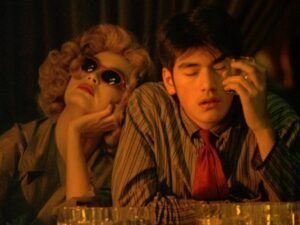From Boat People (1982) to Chungking Express (1994), we bring you some of the best Hong Kong films of all time.
Is Hong Kong a city or a country? Now it’s an autonomous Special Administrative region of the People’s Republic of China. And once, Hong Kong made the most distinctive commercial and arthouse cinema that had a global reach. In the 1970s and 1980s, Hong Kong cinema greatly popularized the kung fu and wuxia action sub-genre. It also made distinctly flavored action comedies and high-stakes gunplay dramas that became a cult sensation in the West. Quentin Tarantino was one of the American filmmakers who was deeply inspired by Hong Kong cinema.
From Shaw Brothers, Bruce Lee, Jackie Chan to John Woo and Johnnie To, the artistry and bravado of commercial Hong Kong filmmakers set a benchmark for action cinema. Hong Kong cinema also promoted filmmakers like Wong Kar Wai, Ann Hui, and Fruit Chan whose existential musings offered a deeper look at fast-paced life in the neon-lit island. However, it’s prominence started waning in the mid-1990s with the onslaught of Hollywood blockbusters. Moreover, there was anxiety and trepidation over Hong Kong’s return to China. Though the vast Chinese market financially helped cinema of Hong Kong, the fearless and innovative filmmaking of the previous era was missing.
Yet within a few decades, Hong Kong has offered a wide variety of cinema that deserves appreciation. Here’s a look at some of the important and best works of Hong Kong cinema.
1. The One-Armed Swordsman (1967)
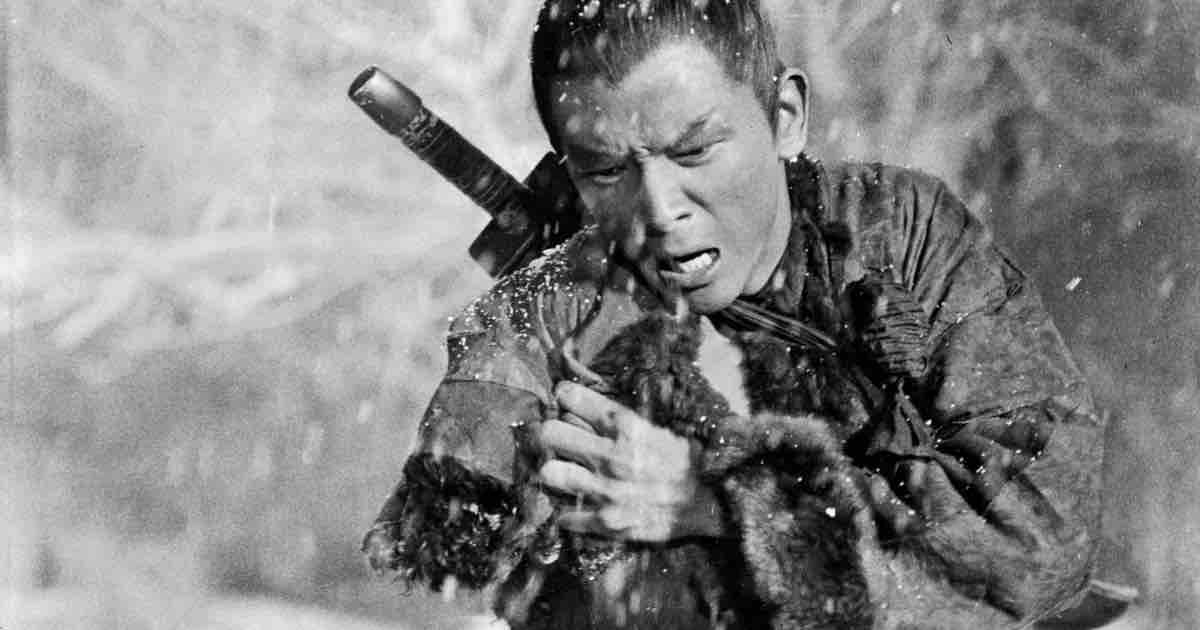
Chang Cheh’s One-Armed Swordsman is widely acknowledged as the film that set the tone for modern wuxia films. Though Shaw Brothers set off the new wave of Hong Kong wuxia films with King Hu’s Come Drink with Me (1966), Chang Cheh’s film was more groundbreaking for its influential thematic cues. The American Western as well as Japanese samurai flicks heavily inspired the narrative and action. Director Cheh was also a fan of James Dean and Marlon Brando, and the central character Fang Gang was written as a fusion of their characteristics.
2. Fist of Fury (1972)
In Lo Wei’s Fist of Fury, Bruce Lee plays China’s most popular fictional character Chen Zhen. It’s a more character-oriented film among Lee’s oeuvre. The story follows Chen Zhen returning to Japanese-occupied Shanghai. Upon learning about his master’s death, the disciple seeks revenge. It’s a simple story laced with a promise of an epic confrontation. Besides, the narrative largely works due to Lee’s charismatic presence. Wei’s stylish direction and Lee’s ferocity make the fight scenes very rousing. The film also ends on an interestingly defiant note.
3. Drunken Master (1978)
Woo-Ping Yuen’s Drunken Master turned the 24-year old Jackie Chan into a star. Subsequently, he was hailed as the rightful successor to Bruce Lee. Jackie Chan’s works are pivotal to Kung fu cinema, especially for the way he introduced comedy into the genre. The slapstick qualities of silent-era comedy are beautifully infused into this tale of mischief. Even early in his career, Chan worked perfectly in tandem with the director to conceive his elaborate stunts. His commitment and action choreography is unmatched, particularly in the balletic fight sequences towards the end.
4. The 36th Chamber of Shaolin (1978)
Chia-Liang Liu’s seminal kung-fu classic follows a revenge-seeking scholar San Te as he navigates his way through 35 chambers to hone his martial arts skill. Once San Te becomes a martial arts master he sets off to take on the oppressive general. Action clearly overshadows the narrative here. The film is a cult sensation, renowned for the close-to-an-hour long training sequence. The combat sequences are relentlessly fabulous and masterfully choreographed by director Liu. The 36th Chamber is not only one of the best martial arts cinema, but also an important entry in the action genre.
5. The Prodigal Son (1981)
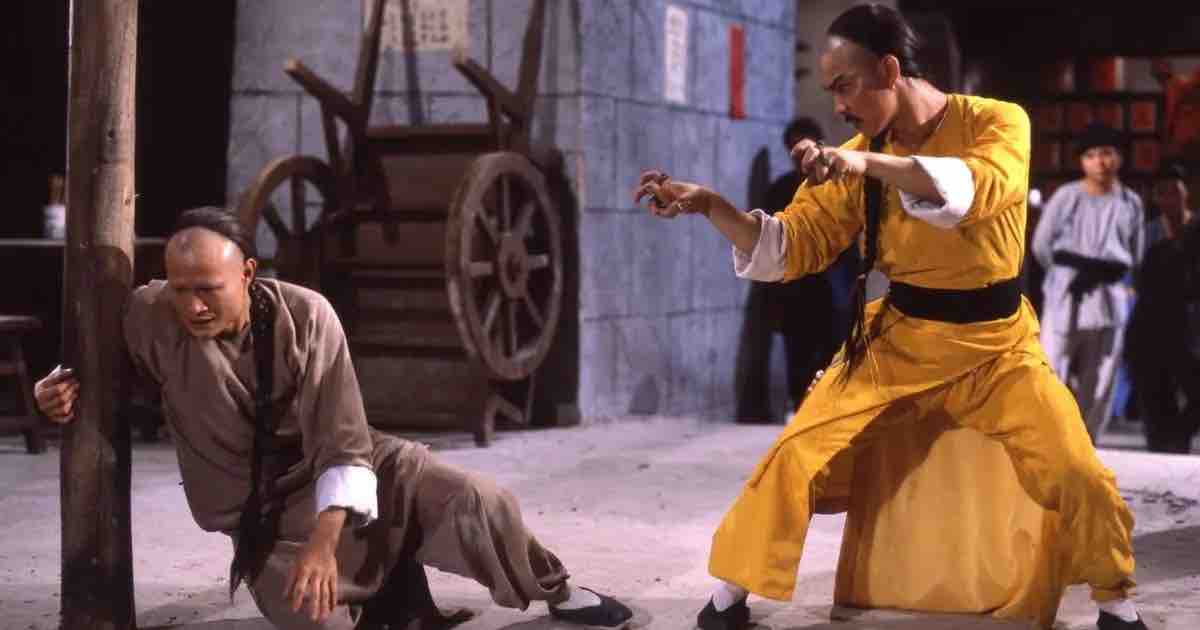
The Prodigal Son is a Wing Chun kung-fu style film, starring the two great Hong Kong action stars, Sammo Hung and Yuen Biao. Sammo directed the film whereas Yuen plays Leung Jan, a spoiled son of a wealthy family. Jan believes himself to be a great fighter, but the truth is that his father bribes his opponents to lose the matches. When Jan is humiliated during a duel, he decides to acquire the skills of a Wing Chun master. Similar to Jackie Chan, Sammo tries to mix wacky comedy with action and drama. The final fight sequence is one of the greatest in kung-fu cinema.
6. Boat People (1982)
Ann Hui has worked as an assistant to director King Hu. But she stood out from other Hong Kong new wave filmmakers in the way she dealt with the country’s political changes, social problems, and women issues. Boat People deals with the distressing plight of Vietnamese people during the reunification of Vietnam. In fact, the humanist drama is said to reflect Hong Kong people’s anxiety over the formal passing of authority to China. But it’s a timeless account of war and the tragedies inflicted by a despotic regime.
7. Police Story (1985)
Police Story is hands down one of the most astoundingly inventive action films of the 1980s. Here, Jackie Chan also took over the writing and directorial duties. Chan plays a police officer, in charge of protecting a witness related to a drug case. Things complicate when Chan is framed for the murder of another cop. Of course, the plot is secondary and Chan’s ingenuity as a stunt choreographer and director claims our attention. The shopping mall fight sequence at the end is a terrific spectacle. It’s always fun to watch Jackie Chan in his prime.
8. A Better Tomorrow (1986)
A Better Tomorrow is the breakthrough film in director John Woo’s career though he had previously made decent kung-fu flicks like Last Hurrah for Chivalry (1979). It also marks Woo’s first collaboration with the nation’s upcoming star Chow Yun Fat and the veteran actor Ti Lung. Inspired by Jean-Pierre Melville and Sam Peckinpah, Woo weaves a gangster picture that’s high on action as well as melodrama. A Better Tomorrow was a huge hit at the domestic box office. Moreover, like Bruce Lee and Jackie Chan, Woo and Chow Yun Fat duo brought international prominence to Hong Kong cinema.
9. City on Fire (1987)
Ringo Lam’s action thriller is largely known for the way Quentin Tarantino liberally borrowed its plot for his directorial debut, Reservoir Dogs (1992). City on Fire is also about a cop who goes undercover and infiltrates a gang that plans a jewelry heist. However, Lam’s storytelling approach is totally different from Tarantino’s. Lam tells the tale in a more straightforward manner, and excels in orchestrating the unsettling violent sequences. Eventually, it’s a formulaic cops-and-robbers story though made with remarkable efficiency.
10. An Autumn’s Tale (1987)
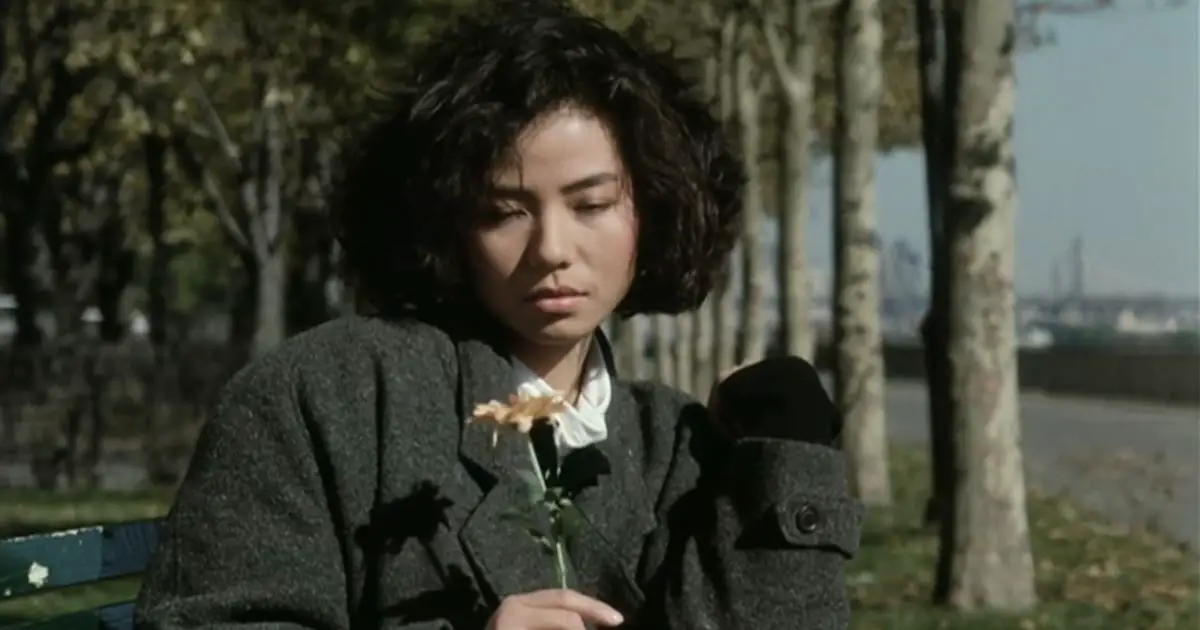
Mabel Cheung’s breezy rom-com revolves around Jennifer, a young woman who travels to New York for her studies. Chow Yun Fat plays Jennifer’s distant relative nicknamed Figurehead. Mabel doesn’t follow the familiar tropes of western rom-coms. Her approach is more subtle and the gradual connection between the two central characters is entirely believable. Cherie Chung is absolutely brilliant in the lead role. Furthermore, Chow, fresh from the success of his action flicks, offers an incredibly sensitive performance. Another outstanding element in the film is its comforting musical score.
11. The Killer (1989)
The Killer cemented John Woo’s reputation as the master of action cinema. But more than action, The Killer brilliantly works because of the characterizations. There’s a fascinating duality at its center as Chow plays a disillusioned assassin and Danny Lee plays the inspector. These two opposing figures come together to bring down a bigger nemesis. John Woo’s films are defined by their excess, whether it’s gunplay or melodrama. Such poetic portrayal of violence might repel some, but it provides a top-notch visceral ride for action fans.
12. Once Upon a Time in China (1991)
Tsui Hark’s action drama about real-life martial arts expert and physician Wong Fei-hung effectively kicked off a new wave of martial arts cinema. Wong was turned into a folk hero in Chinese pop culture. In fact, there were plenty of movies and series featuring him. The wire-assisted combat sequences staged here were later elaborately used in films like Crouching Tiger, Hidden Dragon, Hero, and House of Flying Daggers. Sammo Hung choreographed the action sequences, and the film made Jet Li a star. The film’s huge commercial success spawned two sequels.
13. Center Stage (1991)
Born to a working class family in Shanghai, Ruan Lingyu became the first great star of Chinese silent cinema. She was known as the ‘Chinese Greta Garbo’. Lingyu committed suicide at the age of 24, and it was said that the sensationalist media drove her to death. Maggie Cheung magnificently brings to life Ruan Lingyu in Stanley Kwan’s 1991 biopic. The narrative mixes archive footage alongside the dramatization of Lingyu’s life. Director Kwan takes a deep look at the iconic actress’ vulnerabilities and strengths.
14. Hard Boiled (1992)
The first-act of Hard Boiled nearly surpasses the visual poetry of Woo’s previous magnum opus The Killer (1989). By the end, one could say Hard Boiled is a little too hyperbolic even for John Woo. Yet it’s as good as The Killer in terms of high-adrenaline action sequences. This time Chow Yun Fat plays a police officer who loses his partner in a shoot-out. He joins hands with an undercover cop, played by Tony Leung, to take down an underworld kingpin. From the teahouse to maternity ward, Woo’s action set pieces will leave you breathless.
15. Chungking Express (1994)
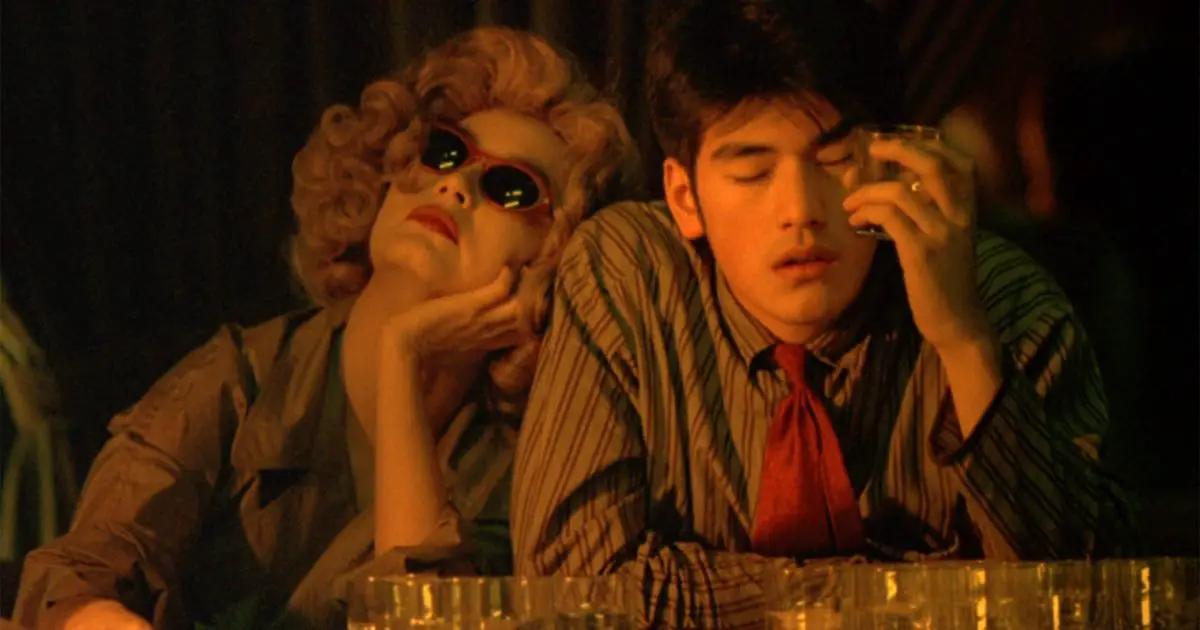
Chungking Express brought Wong Kar Wai to the forefront of Hong Kong cinema. It tells two intertwined tales of street cops falling in love. The film is all energy and style, reminding us of early Godard movies. My favorite of the two is the second story featuring Tony Leung as a cop yearning for his ex-girlfriend. Another delightful aspect of this vignette is Faye Wong’s charming presence. Christopher Doyle’s mesmerizing cinematography turns it into a stirring poem on heartbreak and loneliness.
16. Fist of Legend (1994)
Gordon Chan’s Fist of Legend is the remake of Fist of Fury. While the earlier movie was anchored by the towering screen presence of Bruce Lee, the remake had a more robust script and an intense Jet Li. Fist of Legend is also deeply rooted in the historical context of the Japanese occupation of China. The fight choreography was done by Yuen Wo-ping, who later collaborated with filmmakers like Wachowskis, Tarantino, and Ang Lee. The action sequences are complex and yet Yuen maintains elegance and grace. Li’s aggressive and tight fighting style is a joy to watch.
17. Fallen Angels (1995)
Wong Kar Wai’s Fallen Angels is a spiritual sequel to Chungking Express, both sharing the themes of melancholy, solitude, and fatalism. This film also has a disjointed narrative which follows six young characters, each in pursuit of something out of their reach. Of course, the fascinating aspect of Wong’s films is his frenzied visuals. Here he maintains a distinctive green tint as he intercuts between moments of tenderness and spectacular action. Eventually, Fallen Angels doubles up as a study of Hong Kong’s neon-lit subterranean spaces.
18. A Chinese Odyssey: Pandora’s Box & Cinderella (1995)
Jeffrey Lau’s A Chinese Odyssey is a two-part fantasy extravaganza. It is based on the popular 16th century story ‘Journey to the West’ which portrays the Monkey King legend. Stephen Chow plays the Monkey King whose funny antics drive the narrative. The script also finds the right balance between period drama and slapstick comedy. In fact, both the parts use elements from a variety of genres, and its transitions are incredibly smooth. The special effects look dated, but there’s a brilliant visceral energy here that keeps us engaged. Both the parts are available for viewing on Netflix.
19. Comrades: Almost a Love Story (1996)
Peter Chan’s Comrades is one of the finest romance dramas in Hong Kong cinema apart from the works of Wong Kar Wai. Maggie Cheung and Leon Lai play the central pair, who have fled from mainland China to Hong Kong in search of better prospects. They start out as enemies and gradually become friends with benefits. They also share affection for Mandarin pop legend Teresa Teng. Comrades is highly watchable for the subtle performances of Cheung and Lai. Besides, Peter Chan infuses a bittersweet tone that strongly engages our emotions.
20. Made in Hong Kong (1997)
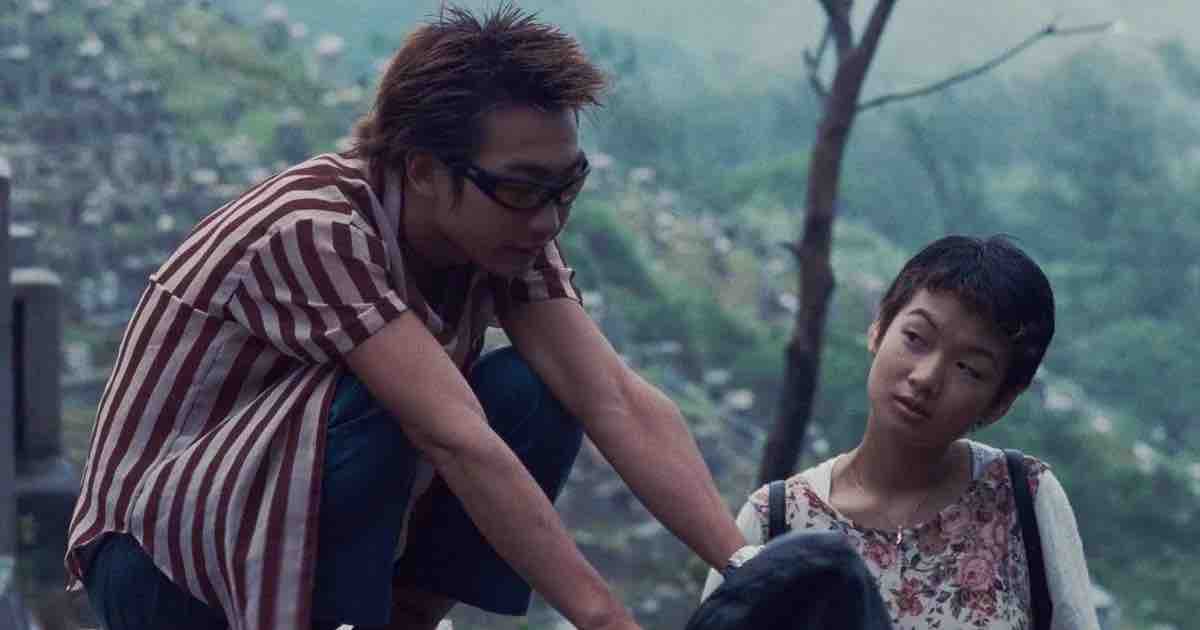
Fruit Chan’s indie drama, as the title suggests, is a portrait of a place and time, when Hong Kong was in its last decade of British colonial rule. It’s full of high energy and avoids a traditional plot in order to simply follow a disaffected youth and a low-level gangster named Sam Lee. Made on a shoe-string budget, Chan deals with a gamut of emotions that’s multi-layered and resonate on a deep level. The shooting style was largely handheld, and the inventive editing elevates the simple narrative. The cast was also made up of non-professional actors whose performances are more than adequate.
21. Happy Together (1997)
In Happy Together, Wong focuses on a disintegrating relationship of a gay couple. They go on a trip to Buenos Aires, in order to bridge the gulf between them. The filmmaker once again proves that he is a master at capturing the fleeting moments of desire, happiness, and longing. Happy Together is more chaotic and less romantic than Wong’s previous films. However, the hypnotic imagery of Wong and Doyle duo totally takes hold of us. Moreover, Tony Leung and Leslie Cheung brilliantly capture the violent emotions that affect a fracturing romance.
22. Ordinary Heroes (1999)
Ann Hui is a committed documentarian of Hong Kong’s political and social history. In 1997, she made As Time Goes By, a documentary that looks at Hong Kong from the 1950s to 1990s through Hui’s own life experiences. It was made in the year Britain handed Hong Kong back to China. Similarly, Ordinary Heroes follows a group of characters and their political activism in the 1980s, before getting crushed by the Tiananmen Square Massacre in 1989. It’s a moving portrait of common people fighting for social justice and freedom.
23. In the Mood for Love (2000)
Wong Kar Wai’s aching portrait of unconsummated romantic relationships transcends cultural and social barriers. It’s a film of yearning glances and fleeting touches, brilliantly brought to life by Maggie Cheung and Tony Leung. In the Mood for Love carries all the trademark aesthetic choices and mise-en-scène of Wong. But apart from that, the unforgettable set, costume design and soul-stirring musical score by Michael Galasso make it a hypnotic experience. There’s not much substance here, but Wong carefully evokes a reaction from the audience that’s deep and meaningful.
24. Infernal Affairs (2002)
Ever since Hong Kong’s John Woo and Ringo Lam moved to Hollywood, there was a scarcity for inventive action films in the country. Andrew Lau stepped in to fill that gap with his high-tension crime thriller. Infernal Affairs, which was later adapted by Scorsese as The Departed, tells the tale of two cops with a secret identity. The central characters were played by star actors, Andy Lau and Tony Leung. There are a bit of contrivances here and there, but it largely remains a tense thriller with an unexpected ending. Infernal Affairs is streaming on Netflix.
25. Kung Fu Hustle (2004)
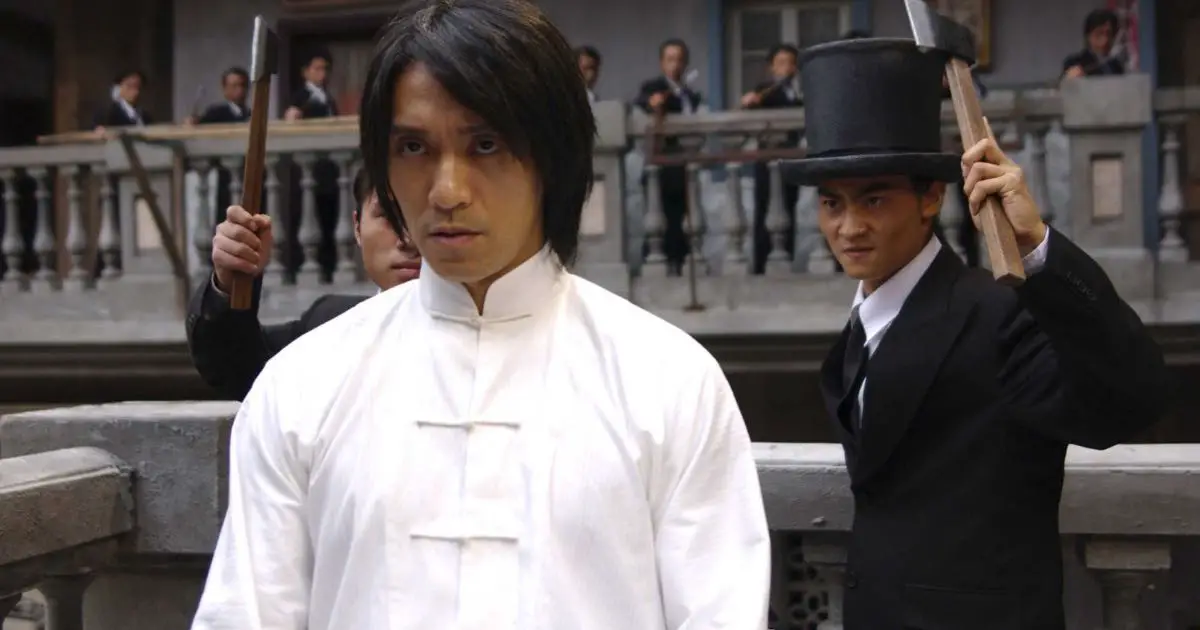
Both Shaolin Soccer (2001) and Kung Fu Hustle, directed by Stephen Chow, are interesting modern visual comedies that are full of wacky and outrageous martial arts sequences. Kung Fu Hustle has better pacing among the two. It’s a relentlessly funny gangster comedy, set in the backdrop of 1930s Shanghai. Stephen Chow’s sense of humor may not work for all, and his narratives are threadbare. But his penchant for concocting action sequences keeps getting bigger, they’re hilariously reckless. It’s a live-action film featuring ultra-violent cartoonish visuals.
26. 2046 (2004)
2046 is a sequel of sorts to Wong’s international arthouse hit In the Mood for Love. It begins a couple of years after the events in that film. Leung’s character sits in a hotel room and writes a sci-fi tale about a lovesick guy returning from the year 2046. The year isn’t arbitrarily chosen. It’s the year Hong Kong will fully become a part of China. Like every Wong Kar Wai, 2046 is also an intimate visual experience, strengthened by the filmmaker’s collaboration with the legendary Doyle. The soundtrack is once again wonderfully unique.
27. Election Duology (2005, 2006)
Johnnie To is generally underrated when compared with John Woo, Tsui Hark, and Ringo Lam. His films are lean and mean, and reach Shakespearean levels in terms of portraying betrayal, guilt and tragedy. Election offers an inside look at the conflicts within Triad – Hong Kong’s ancient gangster society. The sequel is more superior since it provides rich context to the violent narrative. Though it looks derivative on the surface, To’s creative prowess solidifies the plot structure. Mad Detective (2007) and Drug War (2012) are two other noteworthy Johnnie To films.
Both the films are streaming on Netflix.
28. Ip Man (2008)
Wilson Yip’s Ip Man is a heavily dramatized tale of a famous martial arts grandmaster. The most famous person among his students was Bruce Lee. Donnie Yen offers a fascinating low-key performance in the titular role. The narrative is set during the Japanese occupation of China. There’s not much in terms of character depth. Moreover, racial stereotyping and loud patriotic declarations are part of the drama. However, Ip Man shines as a martial arts actioner. The originality of the film lies in the performance and choreography of the action sequences. Ip Man’s three myth-making sequels also boast superb fight scenes.
29. A Simple Life (2011)
A Simple Life is a poignant drama by Ann Hui which received top prizes at many festivals. It revolves around the bond between film producer Roger (Andy Lau) and his elderly housekeeper Ah Tao (Deanie Ip). When Tao suffers from a stroke and retires to an old pensioners’ home, Roger feels obliged to take care of his surrogate mother. Though the story is deceptively simple, Ann Hui directs it with great nuance and gentle humor. The treatment is surprisingly unsentimental. Since Andy Lau’s character is a producer, there are also surprising cameos including Sammo Hung and Tsui Hark.
30. Still Human (2018)
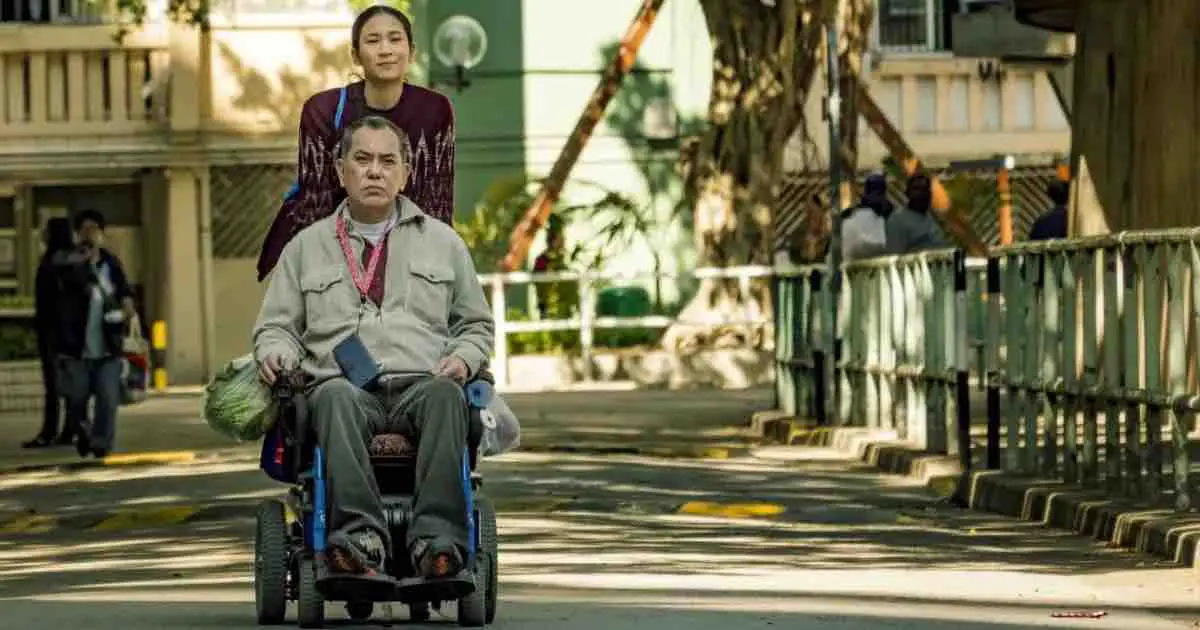
Still Human is an understated drama that revolves around the friendship between an old disabled man and his Filipino caregiver. Director Oliver Chan makes his debut here although his assured storytelling method bears the mark of a veteran filmmaker. The film also offers a rare and reflective look at life in the margins of Hong Kong society. In fact, the themes of disability and immigration are nearly a taboo subject in Hong Kong cinema. Despite few predictable and conventional notes, Still Human stays uncompromising in its treatment. It offers a touching tribute to the power of human connection.
Conclusion
Despite the fears over Chinese censors and the 2020 National Security Law, Hong Kong filmmakers continue to make admirable movies. It still remains capable of making top-notch pan-Asian blockbusters. Of course, censorship has existed since the dawn of filmmaking. Enterprising filmmakers often find a way around such political and social obstacles. Regardless of my effort to list the best works of Hong Kong cinema, I might have most certainly missed out on a few titles. From The Love Eterne (1963) to Mad World (2016) and My Prince Edward (2019), there are a lot of vibrant Hong Kong movies that didn’t make the list. Let me know what I missed and your favorites in the comments below.

